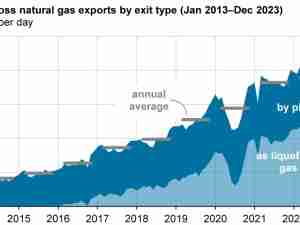Iran’s oil exports lower in July, stay above Western limits
By: Reuters | Aug 06 2014 at 08:36 AM
Iran’s oil exports slipped for a second month in July, yet sales remained above the limit set by the West under an interim deal aimed at curbing Iran’s nuclear programme, according to sources who track tanker shipments.
Iran and six world powers, known as the P5+1, agreed to extend nuclear talks by four months after they failed to reach a July 20 deadline for a permanent resolution. Under the interim agreement, Iran’s crude exports were supposed to be held just above 1 million barrels per day (bpd).
Shipments higher than that have not drawn serious criticism from Washington, partly because U.S. officials say the increased volumes are made up of condensate, a light oil which they say is allowed under the sanctions, as well as Iranian gifts of oil to Syria which they do not view as “sales”.
One source who tracks tanker movements said Iran’s crude oil exports reached 1.14 million bpd in July, slightly lower than 1.18 million bpd in June.
“Japan took less crude. At the same time, China and India took more oil in July to make up for lower amounts in the previous month,” the source said.
July’s shipments also included a cargo that appeared to have gone into Egypt’s Sumed pipeline, the source said.
A second source said exports slipped by 100,000 bpd in July month-on-month.
“We’re seeing Iranian exports down from June. It would not surprise me if some of the buyers are looking to move back into line with U.S. sanctions requirements,” the second source said.
A third source said: “July is down a bit on exports.”
Iran’s biggest clients, including China and India, took more oil in the first six months of 2014 than in the same period of last year, and may keep rising.
Iranian officials have reiterated that they seek to ramp up exports. Nevertheless, continued restrictions on shipping and insurance have meant that a return to Tehran’s pre-sanction rate of over 2 million bpd is still some way off.
“What we are seeing in Iranian exports today is Iran trying to show the P5+1 that it can sell more crude to Asia in an effort to recapture market share in spite of efforts of U.S. regulators to force Asian consumers to cut Iranian crude purchases,” said Amir Handjani, a director at United Arab Emirates-based oil exploration and production firm RAK Petroleum PCL.
“Exports from Iran have steadily risen. However, the problem of Iran being able to access the proceeds of its sale of crude unfettered from existing U.S. and EU sanctions remains in place.”








_A_-_28de80_-_38f408a0a1c601cdbf9fe70c9d30a28084a5da3d_lqip.jpg)
